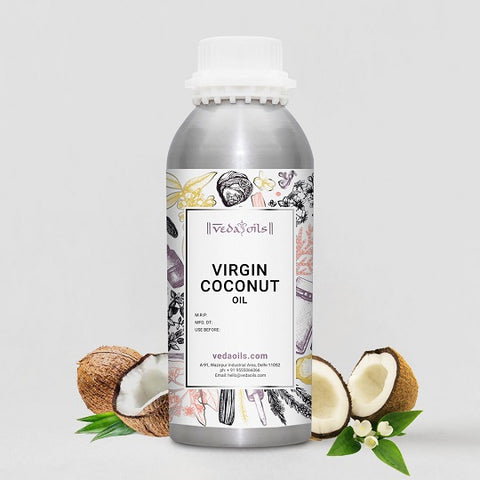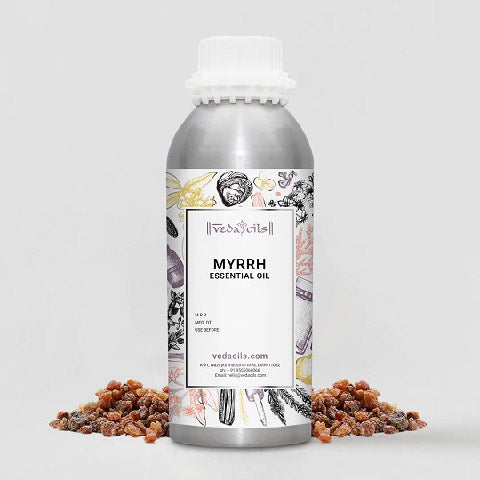Your nose is a barrier between clean air and pollutants, and a dry nose can compromise that barrier. A dry nose, on the other hand, can cause irritation, nose bleeds, and headaches. But how is a dry nose harmful to your health?

The mucus in your nose is what keeps bacteria out of your airways. When your sinuses become dry due to extreme cold or heat, hormonal changes, or something else, you lose the protective mucus coating that keeps microbes of all kinds from entering your body.
If left untreated, a dry nose can easily lead to a sinus infection, upper respiratory infection, or worse. So, what is the answer? Try essential oil-based natural remedies for a dry nose. Learn how to make and apply an essential oil blend to eliminate painful and annoying dry nose symptoms.
Top 11 Essential Oils Help With Dry Nostrils
Dry noses are common, but that doesn't make them any less painful and annoying. With these top 10 essential oils for a dry nose, you can say goodbye to it.
1. Frankincense Essential Oil For Dry Nose
Frankincense essential oil stimulates the blood and calms the heart; it relieves anxiety and depression. This essential oil relieves sinus infections by breaking up phlegm in the respiratory tract and relaxing the lungs' muscles.
The antibacterial properties of this essential oil can help treat a dry nose. Antiseptic, anti-inflammatory, and expectorant properties abound in the essential oil. Frankincense essential oil also has anti-oxidant properties and reduces swelling.
2. Tea Tree Essential Oil For a Dry Nose
Tea tree essential oil is fantastic for treating dry skin and the inner membrane of the nose. This essential oil's antimicrobial properties kill germs while providing moisturization to relieve dry noses.
A dry nose can be painful and cause uncontrolled itching. Tea tree essential oils' anti-inflammatory properties also help to alleviate pain. Regular use can soften tissues and treat a dry nose by increasing blood circulation.
3. Peppermint Essential Oil For Dry Nose
Peppermint essential oil not only cures dry noses but also relieves pain and itching faster than other essential oils while moisturising and unclogging the nose.
Peppermint essential oil is invigorating and refreshing, which will help reduce the symptoms that caused the dry nose in the first place. Because of its strength and ability to overcome nearly any blockage, this essential oil is also effective at relieving sinus congestion.
4. Eucalyptus Essential Oil For Dry Nose
Eucalyptus essential oil helps to relieve the symptoms of a dry nose. This essential oil can be used by applying it to tissue paper, sleeping next to it, mixing it with hot water, and inhaling the steam.
To help clear nasal and sinus congestion, eucalyptus essential oil is frequently used in steam inhalation. This essential oil may also aid in killing germs in and around the nasal passage that contribute to sinus infection.
5. Lemon Essential Oil For Dry Nose
Lemon essential oil works in two ways: it relieves dry noses and infections and boosts immunity by fighting off infectious agents in the future.
People who suffer from chronic dry noses should use Lemon essential oil, which has antibacterial and decongestant properties. This essential oil is excellent for treating a dry nose because it not only cures it but also provides a refreshing feeling and an open nose.
6. Rosemary Essential Oil For Dry Nose
Rosemary essential oil is high in antioxidants and may help with metabolic syndrome. This essential oil is another anti-inflammatory essential oil that can help with a swollen, dry nose.

Rosemary essential oil's anti-inflammatory properties help clear away germs and reduce clogged noses. This essential oil relieves itching and pain caused by a dry nose, as well as redness and inflammation.
7. Virgin Coconut Oil For Dry Nose
As you may be aware, virgin coconut oil is said to be rich in antibacterial and antiviral properties, making it an ideal oil for deep cleaning the mouth to remove bacteria.

Since dry nose infections are induced by a buildup of bacteria in the nasal passage, oil pulling is an excellent treatment and prevention method! Regular use will keep your nasal passages from drying out further, giving you much-needed relief.
8. Virgin Olive Oil For a Dry Nose
Virgin olive oil can also treat infections and acne in the nose. This oil for dry noses helps to prevent nose ailments and improves breathing quality.

Virgin olive oil acts as a natural nose lubricant and helps to moisturise a dry nose. You can also use this oil to treat nasal dryness, this oil naturally unclogs the nose.
9. Castor Oil For Dry Nose
Castor oil also regulates blood circulation and increases the skin's healing capacity to treat dryness while improving the nostrils' ability to hold more moisture to prevent future dry noses.

A dry nose causes itchiness and pain but can also cause nose bleeds. Castor oil's thick consistency and hydration can quickly and effectively relieve a dry nose. Regular use helps to open up the nose and improve breathing.
10. Sesame Oil For Dry Nose
Sesame oil has antibacterial properties that help to relieve nasal itching and inflammation. To relieve pain and irritation caused by dryness, apply sesame oil to the inside of your nostrils.

When combined with chamomile, sesame oil relieves nasal itchiness. This oil's softness gradually improves nasal passage skin's ability to retain moisture, while its fatty acids nourish to prevent future dry noses.
11. Myrrh Essential Oil For Dry Nose
Eucalyptus essential oil helps with dry nostrils by moisturizing and soothing the skin. Mix 1-2 drops of myrrh essential oil with a carrier oil then use a clean cotton swab or your fingertip to apply the diluted myrrh oil to the inside of your nostrils.

It can help to hydrate and nourish the delicate skin inside your nose. This can alleviate dryness, flakiness, and discomfort. Its antimicrobial properties can also prevent potential infections, excessive dryness and skin cracking.
Essential Oil Diffuser Blend Recipe For Dry Nose
Essential oils are the most effective way to treat a dry nose. Their properties synergize when combined. Learn how to make and apply an essential oil diffuser blend recipe for a dry nose.
Ingredients:
- Sesame Oil - 10 ML
- Tea Tree Essential Oil - 5 Drops
- Peppermint Essential Oil - 5 Drops
- Frankincense Essential Oil - 5 Drops
Directions:
Step 1: Add all the essential oils to a small bottle and shake well to combine.

Step 2: Add 10 mL of sesame oil to the mixture and stir well. It's all set.
Step 3: Pour the blend into a diffuser to use.
Step 4: Pour a few drops into your nasal passage.
Step 5: You can also put the mixture in hot water and drink steam.
Precautions while Using Essential Oils for Dry Nose
Pay attention to the precautions to ensure the safe and effective application of the essential oil.
- Always Dilute Essential Oils:- It is best to dilute essential oil with a carrier oil during topical application. Almond and coconut oil are some of the best carrier oils for dilution.

- Avoid Internal Application:- These essential oils are not meant for internal application until prescribed by a healthcare provider.
- Patch Test Before Use:- A patch test is recommended for each individual to ensure essential oil does not react with your skin. It can be done on the inside of the elbow.
- Use Essential Oils with Hydrating Properties:- One can use hydrating essential oils such as rosemary essential oil, myrrh, essential oil, tea tree essential oil, and peppermint essential oil.
Conclusion
Which oil would you choose? All the oils mentioned above can treat dry noses gently, quickly, and effectively. Just be sure to select pure oils. Visit VedaOils.com for high-quality oils at a reasonable price.













 Sign in
Sign in Register now
Register now My Reward Points
My Reward Points














